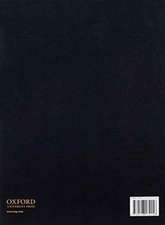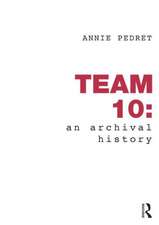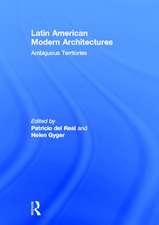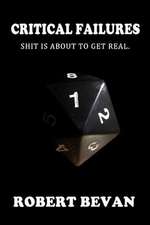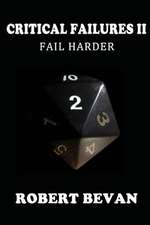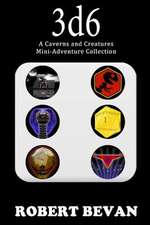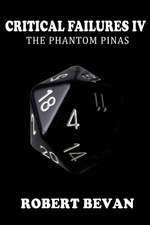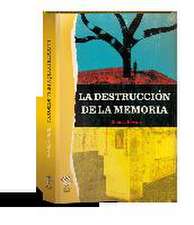The Destruction of Memory: Architecture at War - Second Expanded Edition
Autor Robert Bevanen Limba Engleză Paperback – 14 mai 2016
Crumbled shells of mosques in Iraq, the fall of the World Trade Center towers on September 11: when architectural totems such as these are destroyed by conflicts and the ravages of war, more than mere buildings are at stake. The Destruction of Memory—now available in this accessible, pocket edition—reveals the extent to which a nation weds itself to its landscape. Robert Bevan argues that such destruction not only shatters a nation’s culture and morale but is also a deliberate act of eradicating a culture’s memory and, ultimately, its existence.
Bevan combs through world history to highlight a range of wars and conflicts in which the destruction of architecture was pivotal. From Cortez’s razing of Aztec cities to the carpet bombings of Dresden and Tokyo in World War II to the war in the former Yugoslavia, The Destruction of Memory exposes the cultural war that rages behind architectural annihilation, revealing that in this subliminal assault lies the complex aim of exterminating a people. He provocatively argues for “the fatally intertwined experience of genocide and cultural genocide,” ultimately proposing the elevation of cultural genocide from “collateral damage” to a crime punishable by international law.
Bevan combs through world history to highlight a range of wars and conflicts in which the destruction of architecture was pivotal. From Cortez’s razing of Aztec cities to the carpet bombings of Dresden and Tokyo in World War II to the war in the former Yugoslavia, The Destruction of Memory exposes the cultural war that rages behind architectural annihilation, revealing that in this subliminal assault lies the complex aim of exterminating a people. He provocatively argues for “the fatally intertwined experience of genocide and cultural genocide,” ultimately proposing the elevation of cultural genocide from “collateral damage” to a crime punishable by international law.
Preț: 81.74 lei
Nou
Puncte Express: 123
Preț estimativ în valută:
15.64€ • 16.33$ • 12.94£
15.64€ • 16.33$ • 12.94£
Carte disponibilă
Livrare economică 14-21 martie
Livrare express 27 februarie-05 martie pentru 21.86 lei
Preluare comenzi: 021 569.72.76
Specificații
ISBN-13: 9781780235974
ISBN-10: 1780235976
Pagini: 240
Ilustrații: 67 halftones
Dimensiuni: 127 x 197 x 25 mm
Greutate: 0.27 kg
Ediția:2nd Edition
Editura: REAKTION BOOKS
Colecția Reaktion Books
ISBN-10: 1780235976
Pagini: 240
Ilustrații: 67 halftones
Dimensiuni: 127 x 197 x 25 mm
Greutate: 0.27 kg
Ediția:2nd Edition
Editura: REAKTION BOOKS
Colecția Reaktion Books
Notă biografică
Robert Bevan is the architecture critic for the London Evening Standard and writes regularly on architectural, design, and housing issues. He lives in London.
Cuprins
1. Introduction: The Enemies of Architecture and Memory
2. Cultural Cleansing: Who Remembers the Armenians?
3. Terror: Morale, Messages and Propaganda
4. Conquest and Revolution
5. Fences and Neighbours: The Destructive Consequences of Partition
6. Remember and Warn I: Rebuilding and Commemoration
7. Remember and Warn II: Protection and Prosecution
References
Acknowledgements
Photographic Acknowledgements
Index
2. Cultural Cleansing: Who Remembers the Armenians?
3. Terror: Morale, Messages and Propaganda
4. Conquest and Revolution
5. Fences and Neighbours: The Destructive Consequences of Partition
6. Remember and Warn I: Rebuilding and Commemoration
7. Remember and Warn II: Protection and Prosecution
References
Acknowledgements
Photographic Acknowledgements
Index
Recenzii
“Groundbreaking study of cultural heritage in zones of conflict.”
"Powerful . . . Bevan’s book serves as a remarkably passionate but evenhanded exposition of the neglected architectural heritage of places like Poland, Muslim Bosnia, Armenia, Tibet, Iraq and Cyprus . . . blends together architectural history with a journalist’s instinct for a human story."—
"The sheer volume and scope of the material Bevan has gathered on the destruction of architectural heritage as a form of 'cultural cleansing' makes The Destruction of Memory a valuable resource. . . . The mass of absolutely fascinating, morally complex, and, to me at least, often unfamiliar material . . . makes Bevan well worth reading. . . . And yet the book is worth reading, because Bevan uses vivid narrative detail to bring to our attention the important insight that 'the destruction of the cultural artifacts of an enemy people or nation' can be a kind of analog to genocide or ethnic cleansing."


